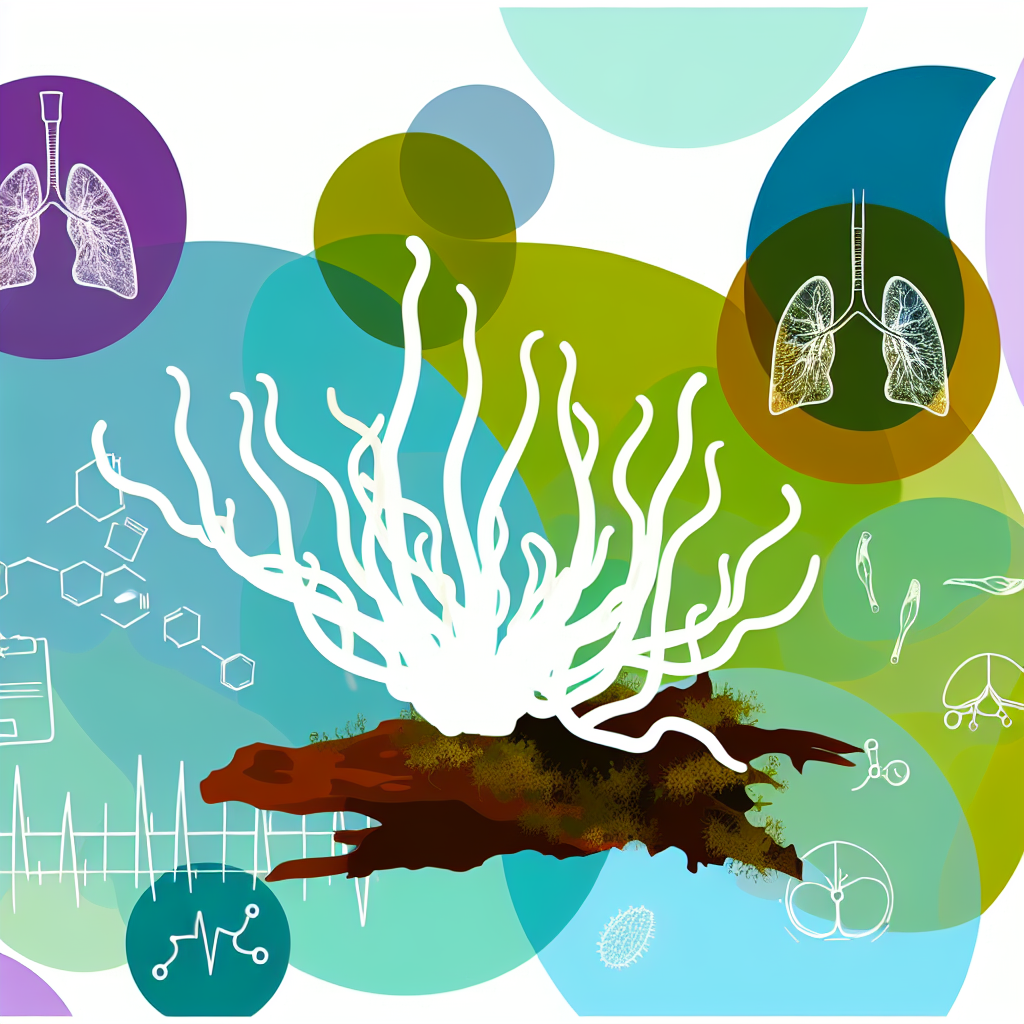Cordyceps for Respiratory Health: An Evidence-Based Superfood for Better Breathing
Cordyceps, a genus of parasitic fungi with its roots deep in Traditional Chinese Medicine (TCM), is gaining rapid popularity in modern wellness circles—especially for its impact on respiratory health. Known for enhancing oxygen use, lung function, and immune modulation, Cordyceps sinensis and Cordyceps militaris are the most widely studied species for respiratory support.
Historically revered for over 1,500 years as an “energy tonic,” Cordyceps has recently entered the scientific spotlight. With global respiratory disorders on the rise due to air pollution, smoking, and infections, Cordyceps presents an exciting natural alternative to synthetic drugs in supporting lung health and improving breathing capacity.
Whether you’re looking to manage conditions like asthma, COPD, or bronchitis—or simply want to boost endurance and oxygen uptake—Cordyceps offers powerful, evidence-backed benefits that deserve your attention.
Backed by Science: Key Studies Supporting Cordyceps’ Lung-Boosting Benefits
A growing body of scientific evidence highlights Cordyceps’ powerful respiratory-enhancing effects. Let’s explore how this ancient remedy holds up in modern clinical research.
1. Cordyceps Improves COPD Symptoms and Lung Function
One of the most compelling studies comes from the journal Evidence-Based Complementary and Alternative Medicine. In a 12-week, placebo-controlled trial, patients with stable chronic obstructive pulmonary disease (COPD) experienced significant improvements in respiratory symptoms and overall lung function after supplementation with Cordyceps sinensis.
Key metrics, including forced expiratory volume (FEV1) and quality of life scores, were all notably enhanced—implying real, measurable breathing improvements.
2. Cordycepin Reduces Inflammation in Airways
Cordycepin, Cordyceps’ powerhouse compound, has shown potent anti-inflammatory effects in the lungs. A study published in the journal Phytotherapy Research demonstrated that cordycepin can suppress inflammatory cytokines like TNF-alpha and IL-6—both significant markers in asthma and chronic bronchitis.
By minimizing lung swelling and mucus buildup, Cordyceps may help combat symptoms like wheezing, coughing, and breathlessness.
3. Increases VO₂ Max and Cellular Energy for Better Breathing
A clinical trial on elderly subjects suffering from fatigue and breathlessness revealed higher levels of VO₂ max (maximum oxygen uptake) in those taking Cordyceps. This finding suggests improved aerobic capacity and energy use—both essential for respiratory and cardiovascular health.
Researchers credited this to enhanced ATP (adenosine triphosphate) levels, indicating better cellular respiration and lung efficiency.
4. Animal Trials Show Reversal of Airway Inflammation
Preclinical studies on rodent models with induced airway inflammation demonstrated that Cordyceps extract significantly reduced bronchial thickening and immune cell invasion in lung tissues. These results help validate the fungus’s value in treating allergic bronchitis and reactive airway diseases.
Animal studies are often the preliminary step before human trials and can offer valuable insight into safety and efficacy.
Cordyceps Militaris: A Superior Species for Respiratory Support
While Cordyceps sinensis has held the traditional spotlight, Cordyceps militaris is rising in popularity thanks to its higher concentration of cordycepin. This species is also easier to grow sustainably using bio-fermentation methods, making it increasingly available as a commercial supplement aimed at lung and respiratory support.
Formulations using Cordyceps militaris may offer more potent respiratory effects, especially for users looking for enhanced ATP production, immunity, and anti-inflammatory potency.
Is Cordyceps Safe and Effective for Long-Term Use?
Most current research supports that Cordyceps is safe when taken under guidance. As with any supplement, supervised consumption—especially among individuals with existing medical conditions—is advised. Although initial trials are promising, more large-scale and long-term human studies are needed to establish standardized dosages and fully understand its interactions with common medications.
For now, Cordyceps appears to be a valuable addition to integrative respiratory care strategies, offering a natural means to boost lung health without the side effects associated with synthetic bronchodilators or steroids.
Conclusion: Breathing Easy with the Power of Cordyceps
Cordyceps offers a powerful bridge between ancient wisdom and modern science. Through improved oxygen utilization, reduced lung inflammation, and enhanced cellular energy production, this mighty fungus holds immense potential for those seeking to optimize respiratory health naturally.
Whether you’re an athlete striving for lung capacity gains or someone managing chronic conditions like asthma or COPD, Cordyceps may provide gentle, effective support. As scientific research continues to unfold, this adaptogenic mushroom stands tall as one of nature’s most promising respiratory allies.
***100 Word Summary:***
Cordyceps, a revered medicinal fungus, has emerged as a powerful natural remedy for respiratory health. Scientific studies demonstrate its ability to improve lung function, reduce inflammation, and enhance cellular energy production – all of which support better breathing. Whether you’re managing conditions like asthma, COPD, or bronchitis, or simply seeking to boost endurance and oxygen uptake, Cordyceps offers a safe, evidence-backed solution. As research continues to unveil its potential, this ancient adaptogen is proving to be a promising respiratory ally in the modern age of lung health challenges.
[Evidence-Based Complementary and Alternative Medicine – Cordyceps and COPD Study](https://www.hindawi.com/journals/ecam/)
[Phytotherapy Research – Cordycepin and Inflammatory Pathways](https://onlinelibrary.wiley.com/journal/10991573)
[NIH – Cordyceps Aerobic Capacity Study](https://pubmed.ncbi.nlm.nih.gov/)
[NCBI – Cordyceps and Asthma in Animal Models](https://www.ncbi.nlm.nih.gov/pmc/articles/PMC5844154/)

Dominic E. is a passionate filmmaker navigating the exciting intersection of art and science. By day, he delves into the complexities of the human body as a full-time medical writer, meticulously translating intricate medical concepts into accessible and engaging narratives. By night, he explores the boundless realm of cinematic storytelling, crafting narratives that evoke emotion and challenge perspectives. Film Student and Full-time Medical Writer for ContentVendor.com




